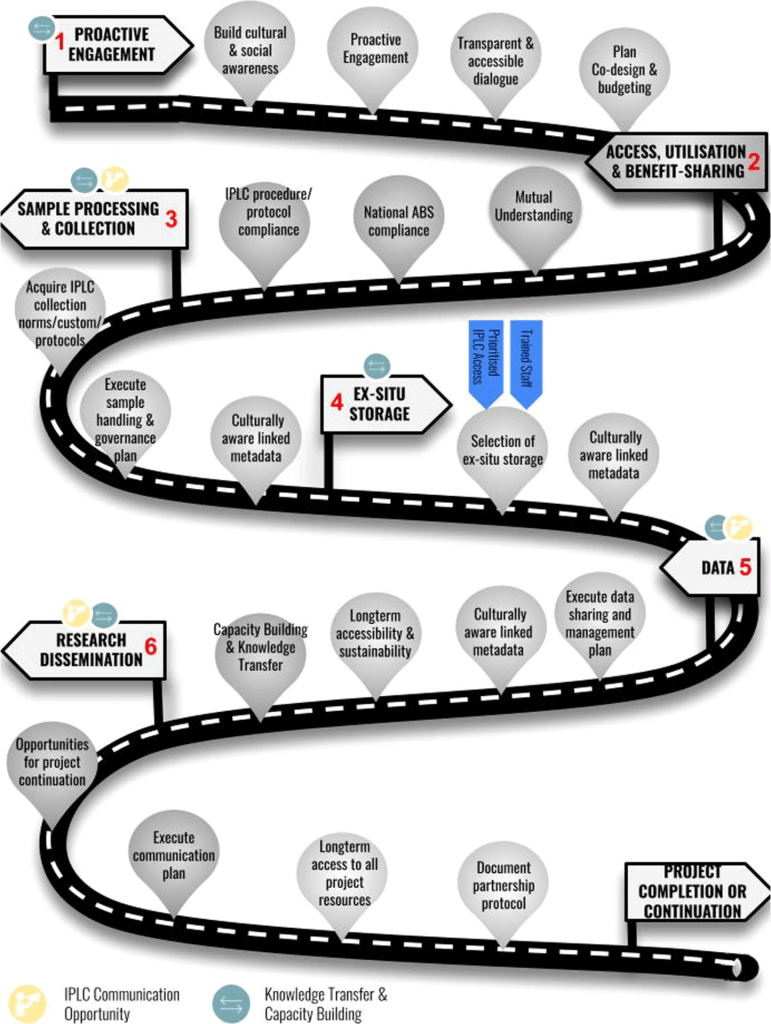Indigenous peoples and local communities as partners in the sequencing of global eukaryotic biodiversity

An overview of the proposed framework with report recommendations embedded, for building sustainable partnerships with indigenous peoples and local communities.
Abstract
The aim to sequence, catalog, and characterize the genomes of all of Earth’s eukaryotic biodiversity is the shared mission of many ongoing large-scale biodiversity genomics initiatives. Reference genomes of global flora and fauna have the potential to inform a broad range of major issues facing both biodiversity and humanity, such as the impact of climate change, the conservation of endangered species and ecosystems, public health crises, and the preservation and enhancement of ecosystem services. Biodiversity is dramatically declining: 28% of species being assessed by the IUCN are threatened with extinction, and recent reports suggest that a transformative change is needed to conserve and protect what remains. To provide a collective and global genomic response to the biodiversity crisis, many biodiversity genomics initiatives have come together, creating a network of networks under the Earth BioGenome Project. This network seeks to expedite the creation of an openly available, “public good” encyclopedia of high-quality eukaryotic reference genomes, in the hope that by advancing our basic understanding of nature, it can lead to the transformational scientific developments needed to conserve and protect global biodiversity. Key to completing this ambitious encyclopedia of reference genomes, is the ability to responsibly, ethically, legally, and equitably access and use samples from all of the eukaryotic species across the planet, including those that are under the custodianship of Indigenous Peoples and Local Communities. Here, the biodiversity genomics community is subject to the provisions codified in international, national, and local legislations and customary community norms, principles, and protocols. We propose a framework to support biodiversity genomic researchers, projects, and initiatives in building trustworthy and sustainable partnerships with communities, providing minimum recommendations on how to access, utilize, preserve, handle, share, analyze, and communicate samples, genomics data, and associated Traditional Knowledge obtained from, and in partnership with, Indigenous Peoples and Local Communities across the data-lifecycle.
Read on Nature.